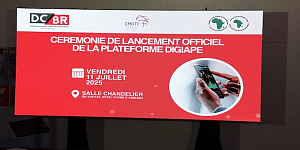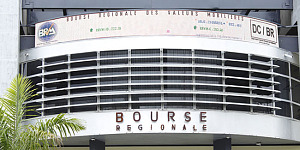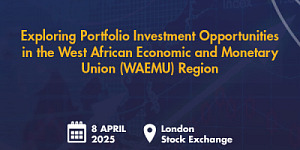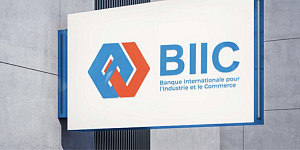West Africa is the considered to be the ultimate frontier market. Now the region’s small stock markets are looking to join forces in an effort to attract more investors.
Should the West African Capital Markets Integration project succeed, it would create the second-largest exchange in Africa after the Johannesburg Stock Exchange (JSE) in as soon as five years.
Stock exchanges for Nigeria, Ghana, Sierra Leone, and Cape Verde are on board. They will be joining with the Bourse Régionale des Valeurs Mobilières (BRVM), which is a regional market itself for eight francophone countries: Benin, Burkina Faso, Guinea Bissau, Mali, Niger, Senegal, Togo, and the largest, Cote d’Ivoire.
But the BRVM is still miniscule compared to the more than 2,000 companies that make up the New York Stock Exchange or the 3,100 companies listed on the Nasdaq.
“We have 39 listed companies coming from the telecommunication sector, the banking sector, [and] industry,” notes BRVM’s CEO, Edoh Kossi Amenounve. Of that small amount, 30 listings are based in the BRVM’s home country of Cote d’Ivoire.
“Potentially we can have up to 100 listed companies on the BRVM in the upcoming five years,” Amenounve said. “But after that, even if you reach 100 listed companies or 200 listed companies in the BRVM, the BRVM will remain a small stock exchange compared to the JSE or the Nigerian Stock Exchange. It is for that reason that it is very important for us to have a kind of linkage between the BRVM and [other] stock exchanges in Africa.”
American investors like Franklin Templeton and Auerbach Grayson are already players in the BRVM, attracted in part to the region’s growth. “The first factor that influences our market is the economy growth in our countries,” said Amenounve. “Ivory Coast [Cote d’Ivoire], which has the biggest economy in the in the West African monetary union, has a performance of about an average 10% during these last three years. The other countries like Senegal, Burkina Faso, Mali, and Togo have an average performance of 5% growth in GDP.”
Yet Western Africa has had some turmoil in recent years. At one point in 2011, the BRVM had to temporarily relocate to Mali after its offices in Abidjan (the economic capital of Cote d’Ivoire) were seized in an armed conflict over a presidential election. At one point, the market’s value was cut in half.
Amenounve brushes off concerns, however. “Africa is changing in terms of political risk,” he said. “We are going to democracy. Our population is very informed on what is going on in our countries. So I think that the political risk is perceived as very low.”
“If you come to Africa to invest, you have to have a long-term vision of Africa,” he added. “That is very key because Africa is growing ... You don’t come to Africa to invest for two years or three years. You have to invest for a long time.”










































